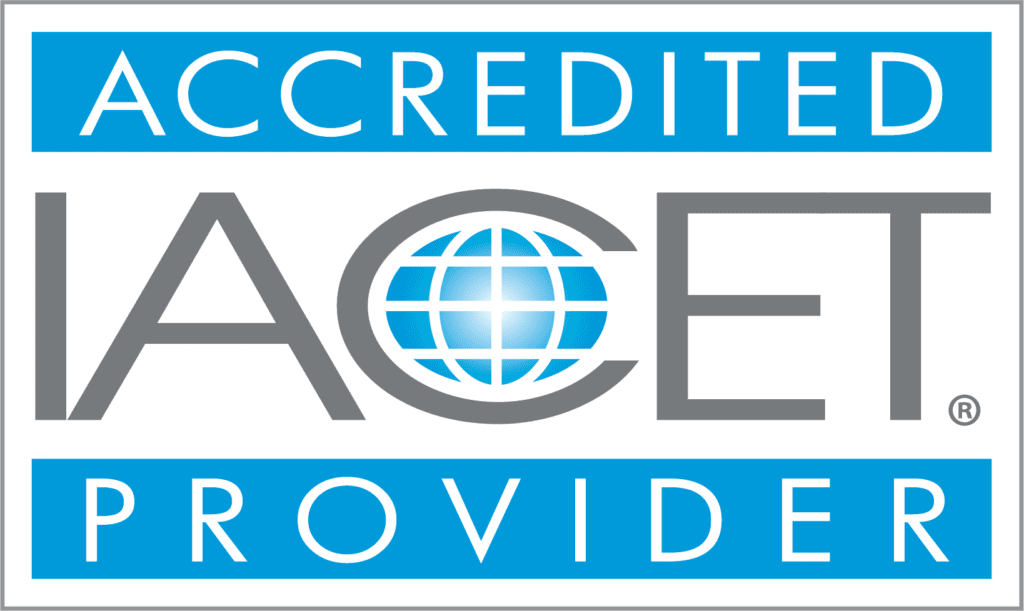
The Basics of ECE Training
What goes into making a great educator? As it turns out, it’s a little bit like making a really delicious pie. Each ingredient has to be measured, portioned, and added with love and attention. In the world of early childhood education (or ECE), training is one of the most important ingredients in the recipe.
Working with young learners is an exciting and rewarding career, but it’s also really challenging. What happens when a child with sensory processing issues is enrolled? How can you provide the most tailored care for infants and toddlers? What happens when a child hits or says “no”? And how the heck do you respond to the mega-tantrum that five-year-old is throwing in the corner?
ECE training prepares educators like you to respond effectively and compassionately to every possible classroom scenario, while also promoting a fun, engaging, and highly personalized teaching style. High-quality, effective ECE in-service training should give you practical strategies that work in the real world. So when you’re done learning, you shouldn’t just be educated — you should also be able to apply new strategies that result in true changes in your classroom.
Educators enrolled in early childhood training hours learn how to:

What you do matters. A preschool teacher isn’t a babysitter — and too many people fail to understand that. YOU know how important your work is, and so do we. So when you’re continually striving to be the best educator you can be, select trainings that give you these benefits:
ECE training courses promote professional development for preschool teachers and others who teach little learners. These courses help you develop new skills or strengthen the things you’re already good at. The best ECE courses are short, focused, and highly subject-specific, which allows you to really drill down into topics of your choosing, or areas where you know you could use some extra support.


If you want to be a great educator, you also need to be an effective leader. Preschool teacher continuing education courses equip you with the leadership skills you need to promote clear communication with parents, students, and other teachers; solve problems; manage a classroom; and perhaps most importantly, master excellent personal leadership skills that flow into all areas of your life.
Students who learn from teachers who have obtained ECE training have access to higher quality early education and more competent, compassionate educators. This helps them grow both academically and personally, and gives them a solid foundation to begin kindergarten with. In fact, their entire academic trajectory is set for a brighter future because of the impact of their preschool teachers.
Teachers who consistently incorporate ECE courses into their professional life may earn more money and claim higher salaries. This is especially true if the courses equip them to deal with specialized groups or issues and they can act as experts in a certain area.
Health & Safety
It’s important to create a safe and healthy environment for students, and encourage their health and safety, too! ECE training courses on health and safety cover many topics, including safe sleep practices, infant feeding, diapering, and what to do in cases of suspected abuse. Beyond that, you can learn about the importance of nutrition and exercise so you can show children how to build healthy habits that will last a lifetime. Many of these courses have excellent tips and strategies that you can put into practice in your own life, allowing you to set yourself up for success and reach your personal health goals.
Social Emotional Development
As an educator, you’re responsible for guarding and building the social and emotional development of students while they’re in your classroom. Courses that discuss trauma-informed childcare; how to understand different temperaments and promote resilience in children; and how to respond to and promote diversity in the classroom can help you improve the social emotional development of your students.
Cognitive Development
Sensory processing issues are becoming more prevalent in the classroom setting. Today, they affect an estimated
5-16%
of kids. Because of this, strategies for teaching in ways that incorporate sensory processing issues is a focus for both parents and teachers alike.
Cognitive development courses teach you how to navigate sensory issues in your classroom and tailor your classroom and curriculum to support learners with sensory processing disorders. This isn’t just good for them — it’s helpful for you, too, as you’ll know how to better respond to these students who often make teaching even more difficult!
Leadership and Professional Development
It’s hard to lead, especially when you’re leading a classroom of infants, toddlers, or school-aged children! Leadership courses for ECE puts an emphasis on critical topics like lesson planning, curriculum, and circle time. Courses like this give you the skills needed to make an impact in the classroom, and become a more organized and efficient educator.
Behavior Management
During your career, you’ll meet so many students, and they’ll all be from different social and emotional backgrounds. When students display complicated or difficult behavior, how do you react? How should you react?
Teaching doesn’t exactly come with a rule book, and behavior management courses teach you how to respond compassionately and effectively to behavioral issues, including sensory processing disorders and aggressive or defiant behavior.
Infants & Toddlers
Infants and toddlers are your youngest learners, and they require specialized
attention and care.
Infant and toddler care courses may seem simple, but they take a look at some of the most relevant (and oftentimes difficult!) subjects for educators who work with young children.
Many people think things like diaper-changing and potty training; transition time in the classroom; and infant health and safety concerns are so basic that everyone knows how to do it. However, there are best practices in every area of education, and care for infants and toddlers is no exception! ECE courses teach strategies for maximizing those daily care routines like potty training and infant feeding so that they build social skills and incorporate oral language development.
Completing ECE training helps you be a better teacher, but we know that sometimes they just seem like one more thing on your to-do list. While you could just pick classes at random so you can check a box (trust us, we know it can be tempting), it’s best to make the investment worth your while. This way, you can not only say you did it, but also learn something new and helpful that you can actually apply in your classroom, and maybe even pass along to future teachers who are in your shoes.
Today, there are many different types of training available, and it’s important to choose the types of courses and the subjects that will benefit you and your career most. Here’s an overview of a few of the most common types of
ECE training:
Online courses are a popular format for ECE training. Not only are they available through a variety of training resources, but they’re also designed to make learning easy and accessible for educators.
Keep in mind that the quality of online courses can vary, so it’s important to get yours from a reputable source! Look for courses that include a balance between evidence-based general knowledge on the topic, combined with practical application strategies and ways to put new things into action in your classroom.
Webinars are live or pre-recorded learning sessions that mimic the feeling of being in a classroom with a teacher. If you’re interested in learning via webinar, it’s a good idea to look for a live option since this is the only way you’ll be able to ask direct questions of the educator.
If you like hands-on learning, you’ll love in-person training. While they’re the most time-consuming option and therefore may be difficult for people with very specific or inflexible schedules, in-person training is an excellent way to learn new skills from an expert in the industry. (Remember: Experts can make more money!) They can also be a fun and engaging way to meet new people and network. These can be in-person OR provided in-person virtually.
Workshops are essentially in-person trainings that cover more than one topic or that go in great detail on a topic. They are typically longer in duration than in-person training and focus on a specific skill or topic in-depth. These are excellent for people who like learning in a group environment. The more teachers working together, the better. After all, you have a lot of useful advice and knowledge that others could most likely benefit from, and vice versa!
Conferences are large, in-person events, usually held in a ballroom or similarly-sized venue. They typically take place on a specific topic or series of topics, and may include a variety of speakers and teachers. Many conferences take place once a year, either for a day or for a few days in a row, and while they’re a great way to take several ECE training courses at once, they can be time-consuming and difficult to plan for.
Remember that NOT all courses are made equal.
Most are boring, dry, and — if we’re being totally honest — not all that useful. Even worse, some are taught by people who have never stepped foot in a preschool classroom! That’s frustrating, especially for those who have been teaching for years, or working toward being a teacher for years.
If you’re going to seek out ECE training courses, either because you have to or you want to, make sure you’re looking for relevant, informative, fun courses taught by people who have actually worked in the early childhood space. We’ve been in the classroom before, and we know exactly what you’re going through. And if there’s anything we’ve learned, it’s that the best advice, ideas, and information usually comes from those who have been right there in the trenches with you!


Complete Relevant Trainings Created for Preschool Teachers, by Preschool Teachers
At Impact Early Education, we know your work is never done. That’s why we provide valuable professional development courses for preschool teachers, directors, and owners in a way that works for you. Self-paced and all online, you don’t have to leave your home or classroom to complete your early childhood training hours. Instead, it’s all available right at your fingertips for you to take whenever you can (because, let’s be real — this stuff is important and you already have a very busy schedule).
If you’ve gotten this far, then we know you love working with young learners, and you’re committed to being the best educator you can be. That’s AMAZING, and so are you! Never forget — your work is among the most important work there is, and we appreciate you.
Now it’s time to go out there and make an impact!
To learn more, explore our courses and membership options, or contact us today!
